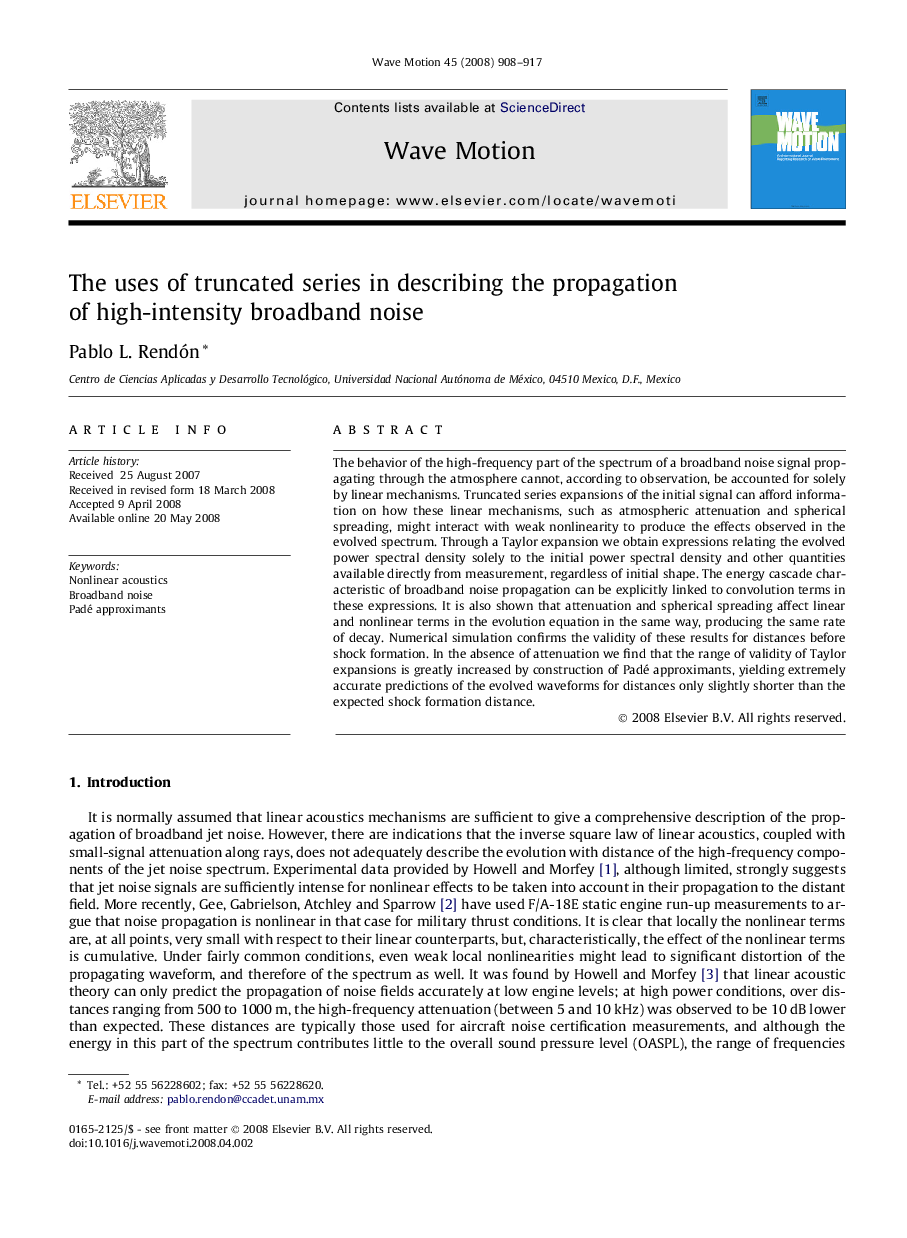| کد مقاله | کد نشریه | سال انتشار | مقاله انگلیسی | نسخه تمام متن |
|---|---|---|---|---|
| 1901335 | 1534281 | 2008 | 10 صفحه PDF | دانلود رایگان |
عنوان انگلیسی مقاله ISI
The uses of truncated series in describing the propagation of high-intensity broadband noise
دانلود مقاله + سفارش ترجمه
دانلود مقاله ISI انگلیسی
رایگان برای ایرانیان
کلمات کلیدی
موضوعات مرتبط
مهندسی و علوم پایه
علوم زمین و سیارات
زمین شناسی
پیش نمایش صفحه اول مقاله

چکیده انگلیسی
The behavior of the high-frequency part of the spectrum of a broadband noise signal propagating through the atmosphere cannot, according to observation, be accounted for solely by linear mechanisms. Truncated series expansions of the initial signal can afford information on how these linear mechanisms, such as atmospheric attenuation and spherical spreading, might interact with weak nonlinearity to produce the effects observed in the evolved spectrum. Through a Taylor expansion we obtain expressions relating the evolved power spectral density solely to the initial power spectral density and other quantities available directly from measurement, regardless of initial shape. The energy cascade characteristic of broadband noise propagation can be explicitly linked to convolution terms in these expressions. It is also shown that attenuation and spherical spreading affect linear and nonlinear terms in the evolution equation in the same way, producing the same rate of decay. Numerical simulation confirms the validity of these results for distances before shock formation. In the absence of attenuation we find that the range of validity of Taylor expansions is greatly increased by construction of Padé approximants, yielding extremely accurate predictions of the evolved waveforms for distances only slightly shorter than the expected shock formation distance.
ناشر
Database: Elsevier - ScienceDirect (ساینس دایرکت)
Journal: Wave Motion - Volume 45, Issues 7â8, September 2008, Pages 908-917
Journal: Wave Motion - Volume 45, Issues 7â8, September 2008, Pages 908-917
نویسندگان
Pablo L. Rendón,